Prioritizing Health Workers’ Preparedness to Prevent Maternal and Neonatal Deaths in Indonesia
Published on January 16, 2024
By Ester Lucia Hutabarat, Senior Communications Specialist, MOMENTUM Indonesia; Melva Moureen Aritonang, former Communications Specialist, MOMENTUM Country and Global Leadership Indonesia; Katherine Wise, Communications Consultant Jhpiego
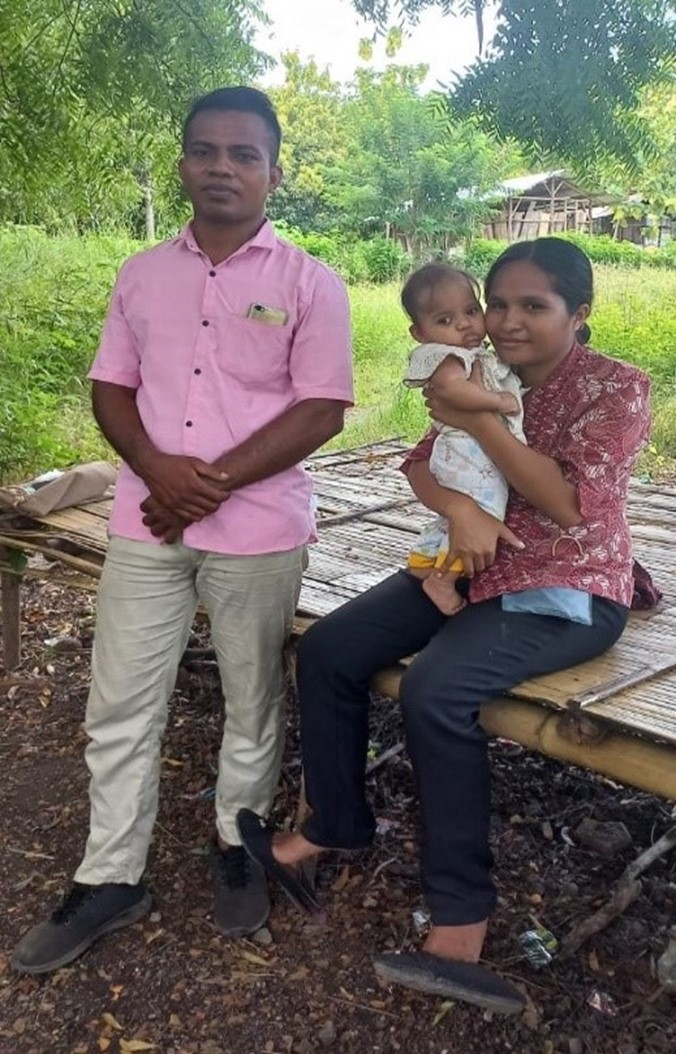
Priska Aquila, 25, had just delivered her firstborn, a girl, at Waigete Health Center in Sikka district, East Nusa Tenggara province, Indonesia. She and her husband, Julian Jon, and the health workers awaited the newborn’s first cries. But the room was silent apart from the gasping sound the baby made as she struggled to breathe.
Concern gripped the room as the medical team quickly recognized the signs of neonatal asphyxia – an interruption of newborn oxygen supply during birth. They immediately sprang into action to perform lifesaving procedures to save the struggling baby.
“I trust the doctor and team will do their best to save my wife and baby,” said Julian as he watched the medical team intervene.
With no time to spare, the medical team quickly decided to use the customized continuous positive airways pressure (CPAP) device, a machine that delivers high concentrations of oxygen, providing breathing assistance. The device was gently placed on the baby and the team began the resuscitation procedure. After a few long minutes, the newborn’s breathing became regular and controlled. After successfully stabilizing the baby’s condition, the medical team immediately referred her to TC Hillers Hospital in Maumere City for further treatment.
“Dr. Mario [the pediatrician] taught us the emergency procedure for asphyxia in newborns during facilitative supervision, including using the customized CPAP device,” said Dr. Elen, the general practitioner leading the medical team for Priska and her baby. “That’s why I decided to use it to save the baby. It was our first case using the customized device.”
Dr. Elen says that health workers attending births are now better prepared to help babies with asphyxia, thanks to the facilitative supervision approach led by the Sikka District Health Office, supported by MOMENTUM Country and Global Leadership.
The Facilitative Supervision for Primary Health Centre (SUFAS) approach used in East Nusa Tenggara province incorporates monitoring tools for maternal and neonatal emergency response, infection prevention, managerial best practices, practical resources, and a referral system. It aims to improve the quality of maternal and neonatal services through mentoring, performance feedback, and motivation from the district-level team. The SUFAS team comprises an OBGYN and a pediatrician from the district hospital, as well as staff from the midwife association and district health office. The process emphasizes clear job expectations, joint problem solving, and two-way communication between the SUFAS team and health providers.
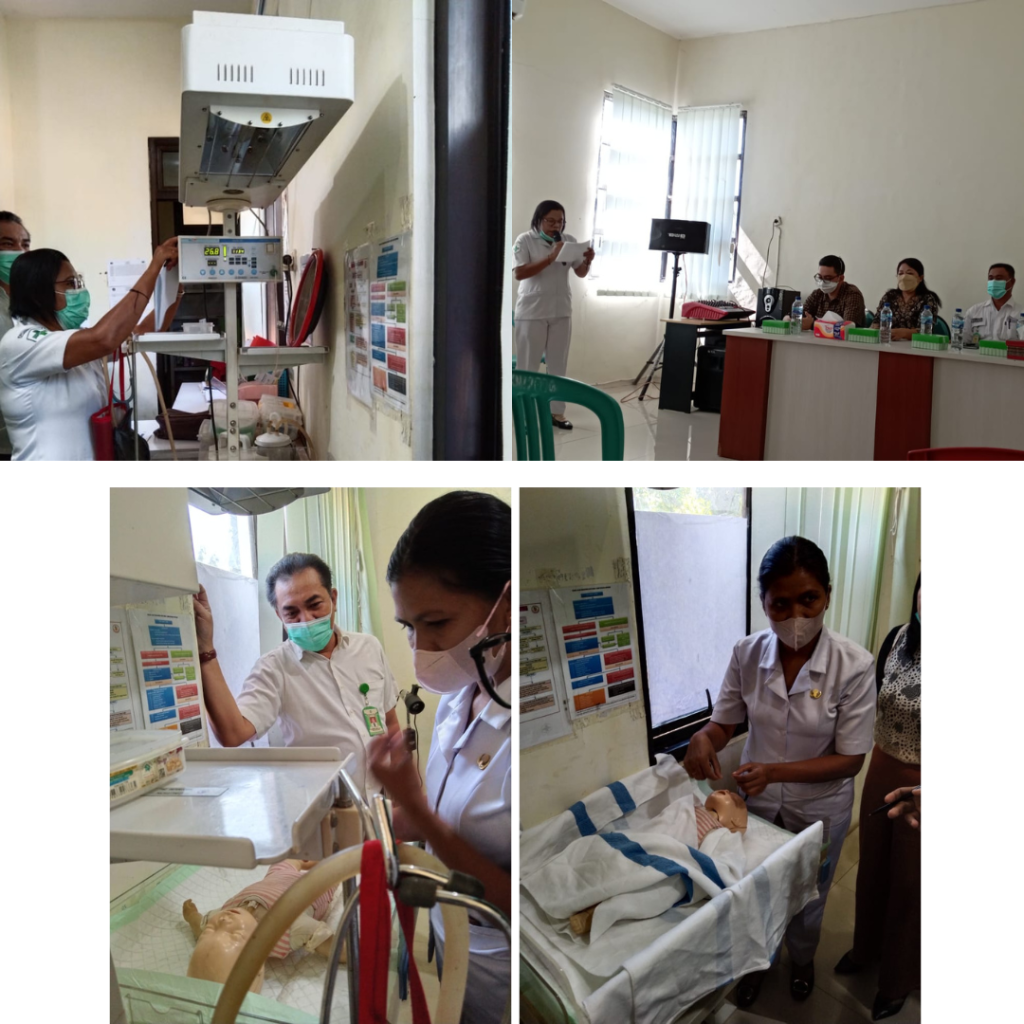
Waigete Health Center participated in the SUFAS program facilitated by MOMENTUM in 2022. During the program, members from the Sikka District Health Office visited the Waigete Health Center team three times within seven months. This was complemented with four virtual sessions and continuous WhatsApp communication, to provide guidance, feedback, and mentorship to improve staff skills, knowledge, and performance.
The Waigete health center team conducted a self-assessment based on the SUFAS list. Then the SUFAS team assisted them to monitor the improvement of neonatal and maternal services, the management and referral service, and provided support to conduct emergency drills with pediatricians and OBGYNs.
As a result, the quality of services at Waigete Health Center has improved, especially in emergency response.
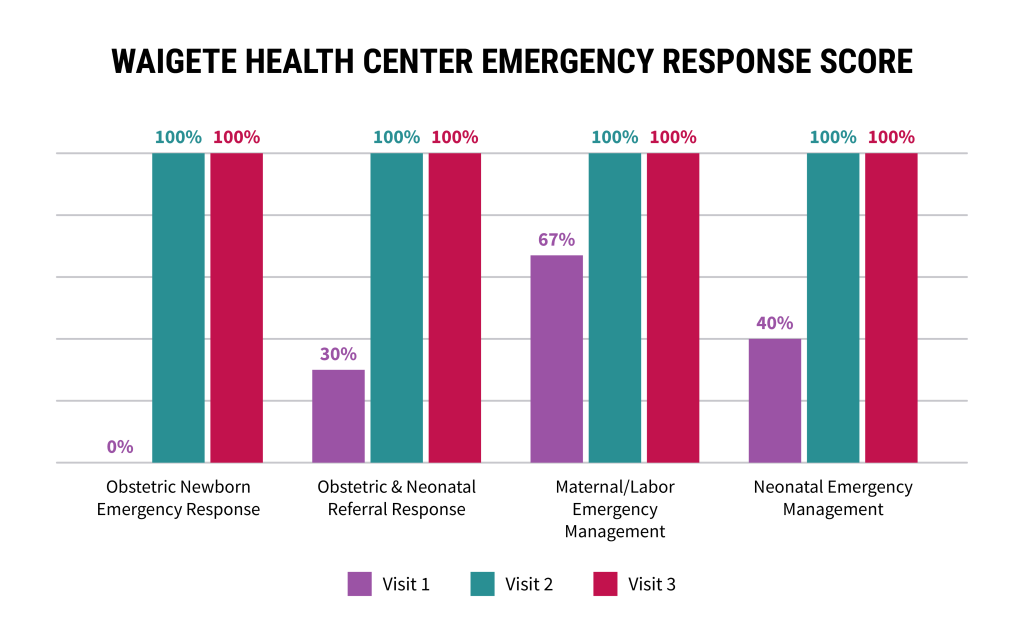
To maintain this progress, the Waigete Health Center conducts emergency case simulations every two weeks, including using the customized CPAP device.

Emergency drills are an essential component for preparing doctors and midwives to handle maternal and neonatal emergencies and save mothers and babies in critical situations.
“We will be able to save more mothers and newborns after SUFAS,” said Maria Gonselina, the sub-coordinator midwife in Waigete Health Center. “Learning from Julian and Priska’s case, we were able to stabilize their baby by using the customized CPAP device. She’s a healthy baby girl now.”
Sikka district encompasses 147 villages and has a total population of 324,252. TC Hillers Hospital, located in Maumere, the capital of Sikka district, serves as the main referral hospital for maternal and neonatal emergencies in the Eastern Flores region, which include five districts. Of Sikka’s 25 primary health centers, 16 offer basic emergency obstetric and newborn care.
In late 2021, MOMENTUM initiated support for Sikka’s core maternal and neonatal health (MNH) interventions, focusing on bolstering health worker capacity, enhancing MNH service quality, fortifying referral systems, expanding community engagement, and improving data utilization for decision-making. Sikka was one of the first districts in the province to join the hospital mentoring program and receive technical assistance to implement maternal perinatal surveillance and response audit. TC Hillers’ clinical performance monitoring score surged from 47% to 91% in just five months.
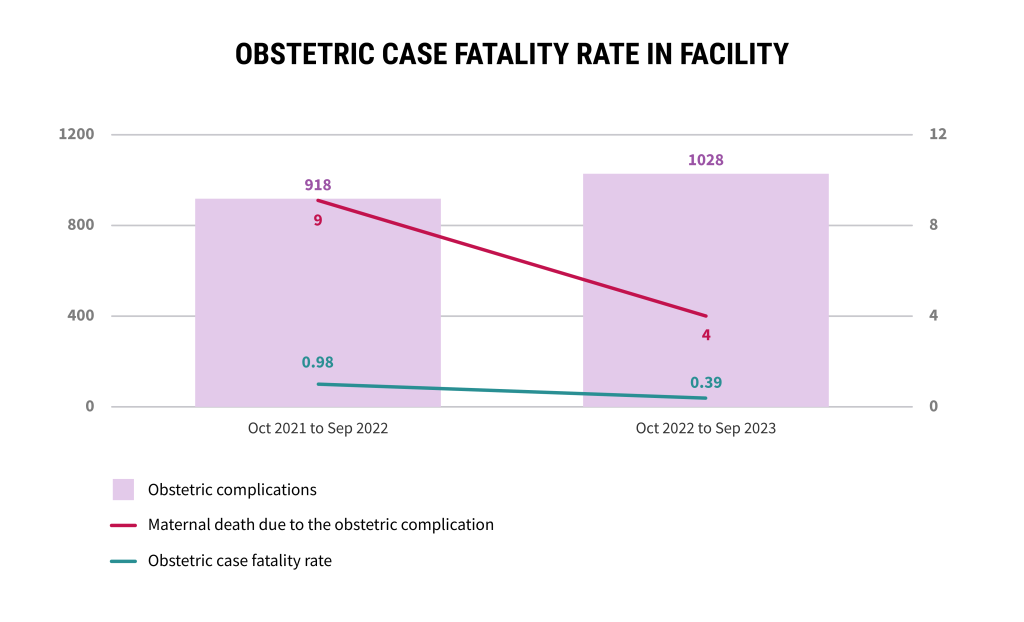
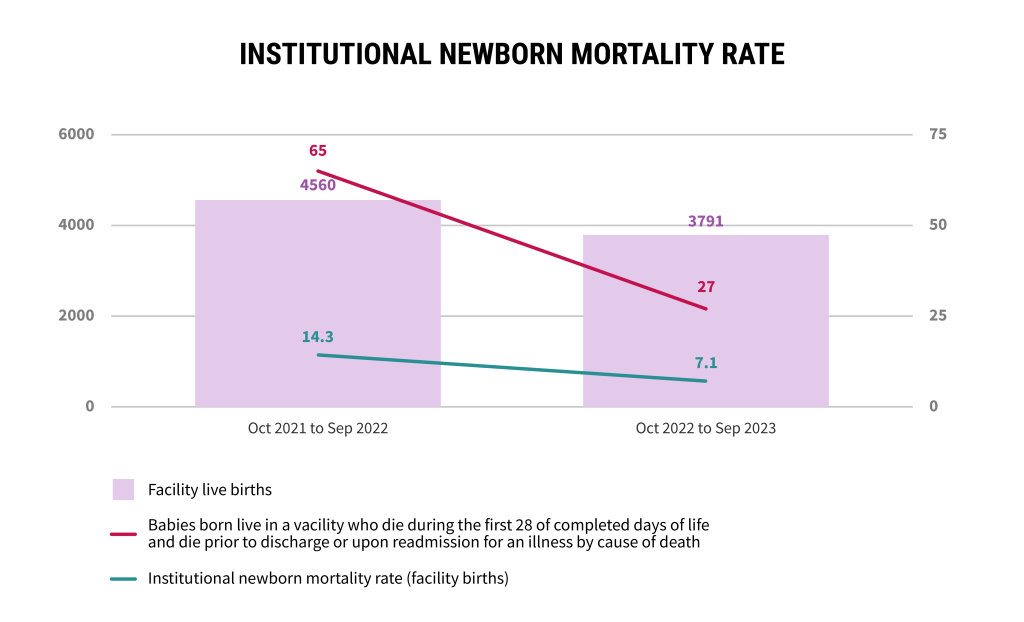
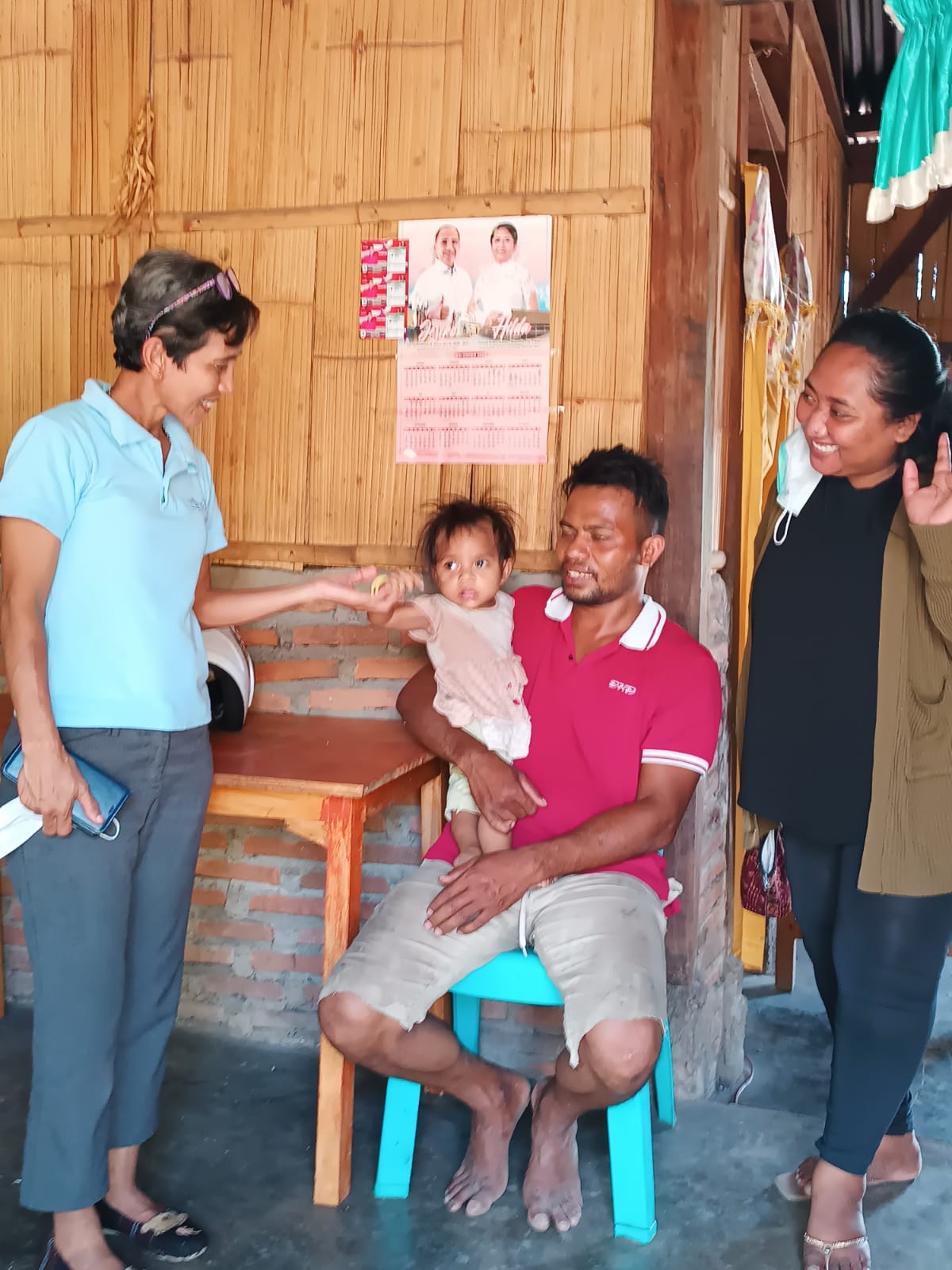
Hospital staff utilized the maternal and perinatal notification (MPDN) platform to track and share death cases. The combination of hospital mentoring and SUFAS significantly bolstered healthcare facilities’ readiness to manage maternal and neonatal emergency cases, equipping healthcare professionals with enhanced knowledge and skills compared to their counterparts in other facilities. Encouragingly, MPDN data suggests a decrease in maternal and newborn deaths over the past year in Sikka District.
MOMENTUM continues to strengthen the use of data for decision making and the application of adaptive management for continuous and sustainable MNH improvements in Sikka district.
In Waigete, Priska and Julian named their baby Maria Ovila Oktiviani Moni or Viani for short. Thanks to the quick-thinking staff at Waigete Health Center, Viani is now a healthy one-year old and is learning to walk.

